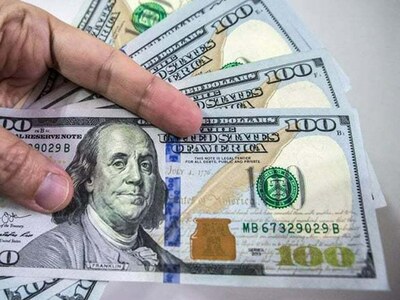Dollar Set for Weekly Gain Amid Trade War Hopes
The dollar is on track to record its first weekly increase since mid-March, buoyed by China’s decision to grant tariff waivers on some imports from the United States. This development has fostered optimism that the trade dispute between the world’s two largest economies might be easing.
Throughout the week, the US currency experienced volatility due to conflicting signals regarding a potential thaw in the strained relationship between Washington and Beijing.
Earlier in the week, the US President Donald Trump hinted at a possible de-escalation of the tariff battle, mentioning that direct discussions were already in progress.
By Friday, numerous businesses confirmed that China had provided certain exemptions from its 25% tariffs on US imports. The Chinese government is also reportedly requesting companies to specify which goods could qualify for these exemptions.
In an interview, Trump stated that his administration is engaged in negotiations with China to reach a tariff agreement and that the Chinese President Xi Jinping had contacted him. However, Beijing has challenged the US account of these discussions.
The dollar has appreciated against a basket of currencies, rising approximately 0.2% on the day and poised for a modest weekly gain, marking its first since mid-March.
Market Strategist Comments
A market strategist at City Index, Fiona Cincotta, noted, “I don’t think that anything’s necessarily much clearer now, but it does feel like there’s no more ramping up… it seems to be heading more towards de-escalation than escalation.”
Despite the exemptions, uncertainty remains regarding the broader implications, preventing a complete reversal of investor outflows from the dollar, which has decreased by 4% since the initial announcement of tariffs.
Cincotta added, “We have seen this pull out of oversold territory. But it’s definitely too early to be cracking open the champagne for the dollar recovery, we’re not quite there yet.”
Safe Havens Decline
The dollar increased by 0.82% against the yen, reaching 143.775, and rose by 0.42% against the Swiss franc, trading at 0.82985 francs.
The euro weakened by 0.24% to $1.1363, while the pound fell by 0.12% to $1.332, even in the face of robust UK retail sales data.
Earlier in the week, Trump’s remarks about potentially dismissing Federal Reserve Chair Jerome Powell due to insufficient interest rate cuts caused the dollar to weaken against major currencies. However, it rebounded when the president clarified that he had no intention of replacing the central bank head.
Washington has achieved some progress in preliminary trade negotiations with South Korea and Japan.
The Japanese Finance Minister Katsunobu Kato stated that there were no discussions on currency targets after meeting with the US Treasury Secretary Scott Bessent. Previously, Trump had accused Tokyo of devaluing its currency to benefit its exporters.



Comments (0)
No comments yet. Be the first to comment!
Leave a Comment